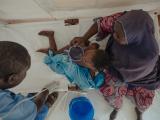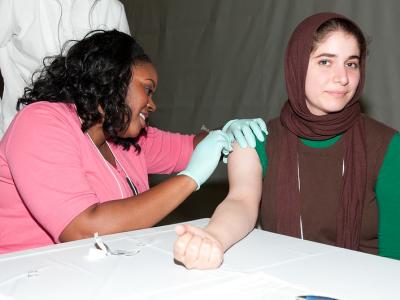May 16, 2013 (CIDRAP News) – A study of water filter samples collected from swimming pools in Atlanta last summer found markers for Escherichia coli in more than half, a finding that suggests fecal contamination, the US Centers for Disease Control and Prevention (CDC) reported today.
The CDC and its partners from state and county health departments tested the filter samples for genetic material of several microbes known to pose an illness threat. Testing included both indoor and outdoor public pools.
The E coli finding suggested that swimmers were often introducing fecal material when the pathogen washed off swimmers' bodies or when fecal incidents occurred in the water. Though 58% of pool filter samples tested positive for E coli DNA, none found evidence of E coli O157:H7, a strain linked to foodborne illness.
Investigators found Pseudomonas aeruginosa—which can cause rashes and ear infections—in 59% of samples. The source of that pathogen can be from environmental contamination or be introduced by swimmers.
Cryptosporidium and Giardia, two protozoans spread by fecal routes, were found in less than 2% of samples.
The CDC said the study didn't include waterparks, residential pools, or other recreational settings and that the findings might not apply to all pools in the United States. However, swimmer hygiene practices across the country are probably similar to those in Atlanta, the agency said in a press release today.
Michele Hlavsa, RN, MPH, who heads the CDC's Healthy Swimming Program, said in the release that chlorine and other disinfectants in pools don't kills germs instantly. "That's why it's important for swimmers to protect themselves by not swallowing the water they swim in and to protect others by keeping feces and other germs out of the pool by taking a pre-swim shower and not swimming when ill with diarrhea," she said.
The CDC said the release of the study was timed to raise awareness during Recreational Water Illness and Injury Prevention Week, which runs from May 20 to May 26.
See also:
May 16 MMWR report
May 16 CDC press release

















